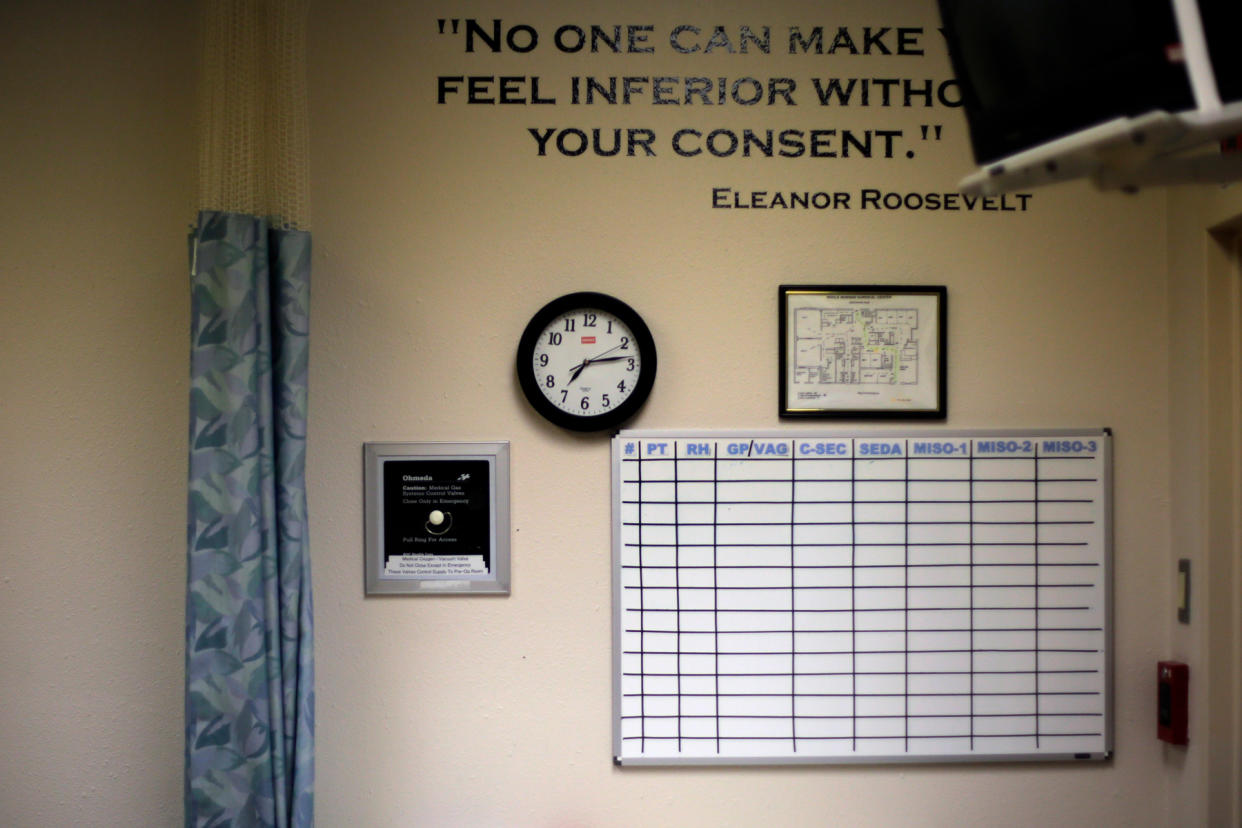Texas’ Most Famous Abortion Provider Is Closing Its Doors

In 2016, Whole Woman’s Health — an abortion provider operating four clinics in Texas — celebrated the last big reproductive rights victory before the Supreme Court. When it did, the organization’s name became legal shorthand for a new precedent created by that decision: No state, the court ruled, could pass a law that would impose an “undue burden” on a woman seeking an abortion.
Six years and three Supreme Court justices later, Whole Woman’s Health is closing its Texas clinics. As of Friday, a total ban on abortion is in effect, stripping the state’s 14.4 million women of the ability to end an unwanted pregnancy, at any stage.
More from Rolling Stone
Women of Color Will Face More Criminalized Pregnancies in Post-'Roe' America
SCOTUS Justices 'Prayed With' Her -- Then Cited Her Bosses to End Roe
The Worst Person You Know Just Made a Great Point: 'Roe v. Wade' Edition
Lawyers for Whole Woman’s Health had sued to block enforcement of the state’s pre-Roe ban, which was written in 1925. A Houston judge deemed the ban unenforceable by a Houston judge last Wednesday, but on Friday, it was upheld by Texas’ State Supreme Court. Under the original text, abortion providers could be punished with up to 10 years in prison for helping terminate a pregnancy. (On Friday, the court ruled providers could be fined and sued, but not criminally prosecuted, for assisting with an abortion.)
On Wednesday, Whole Woman’s Health announced plans to relocate its Texas operation across the state line, to New Mexico, where since last fall it has been offering “virtual abortion care” — telemedicine appointments for patients with pregnancies up to 11 weeks. Founder Amy Hagstrom Miller hopes that the decision to open a new brick-and-mortar clinic in New Mexico might “mitigate some of the harm” of the Texas’ officials’ decision to end legal abortion “and provide Texans with as close an option as they can have with a known provider… That’ll give some people that option, but it won’t fix the problem.”
Operations at Whole Woman’s Health’s clinics in Austin, McAllen, Fort Worth and Dallas, Texas ceased last month, when the Supreme Court overturned Roe v. Wade. But until Friday, there was still a shred of hope that the lawsuit — the eleventh the organization has filed since opening its first clinic in 2003 — might keep those facilities open, if only for a short while longer. (Texas has a second, more recent ban on abortion that is poised to go into effect in August.)
The day the decision came through, founder Amy Hagstrom Miller gathered remaining staff together and broke the news that reopening in Texas wouldn’t be an option this time. “We have some employees in Texas who’ve been with us for 18, 19 years. Some of them have been through abortion bans before, and had to close their clinics, and were part of being able to reopen when we won our Supreme Court case in 2016,” Hagstrom Miller told Rolling Stone on Wednesday. “They’re very committed to working with us to try to figure out ways to help get safe abortion care.”
Hagstrom Miller started working in abortion care when she was 21 years old and fresh out of college. (“Our ability to control our fertility is really fundamental to women’s equality and autonomy, and that’s what brought me to the field,” she says.) After purchasing an Austin clinic from a retiring doctor to start Whole Woman’s Health in 2003, she became the person who aging abortion providers — many of whom started clinics in the ‘70s after Roe was decided — called when it came time to retire.
Whole Woman’s Health ultimately went on to acquire 14 additional clinics — in Minnesota, Viriginia, Maryland and Indiana — making it one of the largest independent abortion providers in the country, and a bulwark against the increasingly aggressive efforts to restrict abortion access — in Texas, particularly.
“We were very committed to fighting in Texas for as long as we can,” Hagstrom Miller says. When Whole Woman’s Health has faced legal set-backs in the past, they’ve always found a way to rebound. “There is not a path to restore access to safe abortion in Texas right now,” she says flatly. “There’s 55,000 abortions annually in Texas — reported. [I.e.,] safe, legal abortions,” Hagstrom Miller says. Those figures, she says, make Texas officials’ decision to end legal abortion “a public health crisis.”
In the meantime, Whole Woman’s Health’s Texas staff — the ones that weren’t laid off — are already packing up medical supplies and equipment, preparing to store patient records, putting the buildings they own up for sale and trying to get out of leases of the buildings they don’t own.
“It’s heartbreaking stuff,” says Hagstrom Miller. “In the past, there has always been an “arc toward justice in the end.” That doesn’t seem to be the case this time. “We wish that we could tell a different story.”
Best of Rolling Stone

